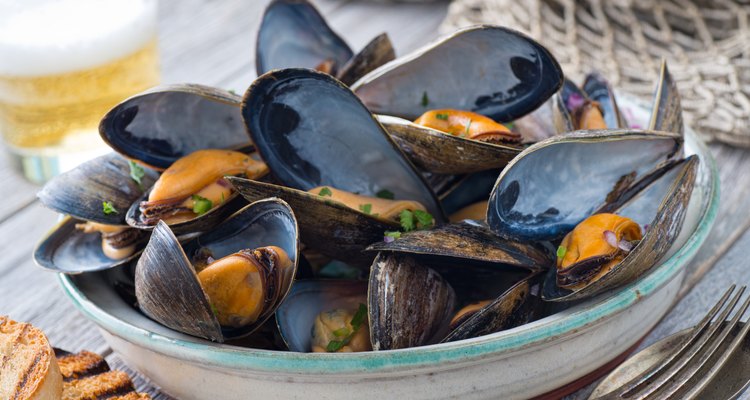
Fudio/iStock/Getty Images
Farm-raised mussels and clams are not only healthy to eat, they are good for the ocean environment. Farm-raised mussels grow on ropes that not only keep the mussels off the floor, but also minimize the potential of loss from predators. Similarly, farm-raised clams are also placed near ropes, or in mesh or plastic trays.
Benefits
This suspension method enables the shellfish to clean the surrounding water, as their feeding method involves remove particles and nutrients that float through water. In addition, suspension in the water makes them easier to harvest and minimizes habitat destruction.
Potential Downsides
While suspension is a good tool, overly populated fishing farms can lead to too much waste. In addition, clam and mussel species may not be native to the area in which they are farmed, and may crowed out native species. To avoid buying clams or mussels that are not farmed in a healthy manner, check the Monterey Bay Aquarium's (montereybayaquarium.org/cr/seafoodwatch.aspx) list of seafood choices to ensure your selection is sustainably farmed.
Healthful Choice
Assuming your mussels and clams are sustainably farmed, the shellfish are also part of a healthy diet. Zinc, a mineral that your body cannot store, is available in large amounts in both of these shellfish. Mussels have .81 mg and clams have 2.32 mg per 3-oz. serving. In addition, the shellfish are low in cholesterol, fat and calories. Mussels have just 48 mg of cholesterol, 3.8 g of fat and 147 calories per 3-oz. serving. Clams, in a 3-oz. serving, have 57 mg of cholesterol, 1.65 g of fat and 126 calories.
Buying Clams and Mussels
When purchasing these shellfish, look for fish that are labeled as sustainably farmed. In addition, have the clerk inspect the clams and mussels to ensure that the shells are not broken or cracked, as these shellfish are unsafe to eat and should be discarded. Keep the shellfish on ice or return home immediately to scrub them and store them in the refrigerator on a dampened towel. Do not place them in plastic bags or airtight containers.
Related Articles
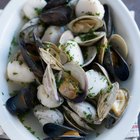
How do Mussels Protect Themselves?

How Long After Catching Should You Cook ...
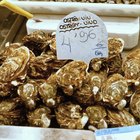
The Best Method to Store Fresh Oysters

How to Keep Cranes Out of Fish Ponds
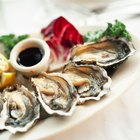
How Long Do Shucked Oysters Stay Fresh?

Precautions With Fully Cooked Frozen ...

How to Prepare Live Crawfish
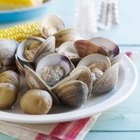
Types of Edible Clams

Beaches Near Greenville, North Carolina
How Long Does It Take for ...
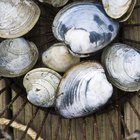
How to Steam a Quahog
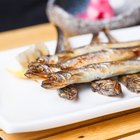
How to Cook Shishamo Fish
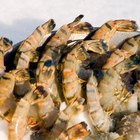
Tiger Prawns vs. Shrimp

How to Cook Mussels & Clams Together

How Often Do Lobsters Shed Their ...

How to Cook Fully Frozen, Whole Lobster ...

Why are Lobsters Cooked Alive?

Can You Freeze Raw Oysters?
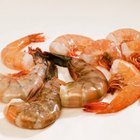
How to Cook Frozen Shrimps That Still ...
Do Sardines Ever Go Bad?
References
Writer Bio
Carolyn Williams began writing and editing professionally over 20 years ago. Her work appears on various websites. An avid traveler, swimmer and golf enthusiast, Williams has a Bachelor of Arts in English from Mills College and a Master of Business Administration from St. Mary's College of California.
Photo Credits
Fudio/iStock/Getty Images